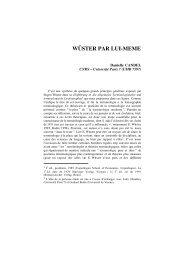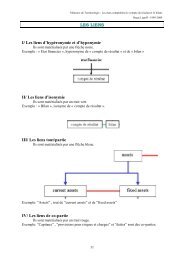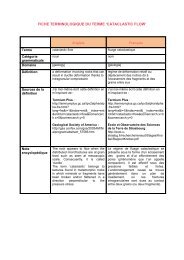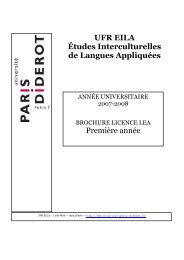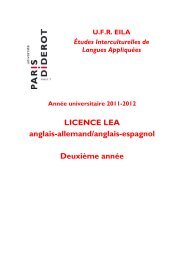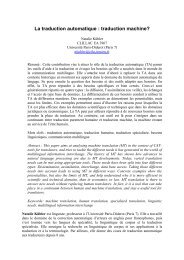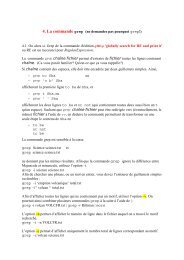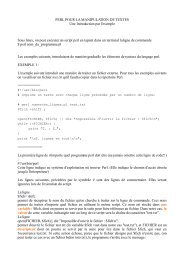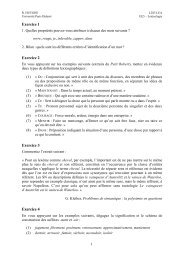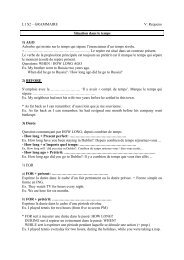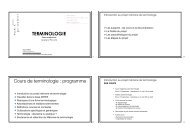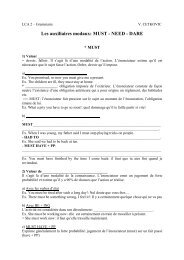INTRODUCTION TO ENGLISH TEXT LINGUISTICS
INTRODUCTION TO ENGLISH TEXT LINGUISTICS
INTRODUCTION TO ENGLISH TEXT LINGUISTICS
You also want an ePaper? Increase the reach of your titles
YUMPU automatically turns print PDFs into web optimized ePapers that Google loves.
Professor Christopher Gledhill<br />
(Notes de cours, Linguistique du texte anglais, 48LGAN23, EILA, Université Paris Diderot)<br />
<strong>TO</strong>PIC 3. COHERENCE AND COHESION<br />
3.1 Context and the study of Pragmatics<br />
Imagine that you overheard the following snatch of spoken English:<br />
Let him have it!<br />
What or whom does this text refer to? What kind of information would you need to have in order<br />
to understand this text?<br />
Consider your response to these questions in the light of the following quotation from one of<br />
founding figures in modern anthropology:<br />
“A statement, spoken in real life, is never detached from the situation in which it has been<br />
uttered. For each verbal statement by a human being has the aim and function of expressing<br />
some thought or feeling actual at that moment and in that situation, and necessary for some<br />
reason or other to be made known to another person or persons – in order either to serve<br />
purposes of common action, or to establish ties of purely social communion, or else to<br />
deliver the speaker of violent feelings or passions... utterance and situation are bound up<br />
inextricably with each other and the context of situation is indispensable for the<br />
understanding of the words... a word without linguistic context is a mere figment and stands<br />
for nothing by itself, so in reality of a spoken living tongue, the utterance has no meaning<br />
except in the context of situation.” (Bronislaw Malinowski 1923, 307) 2<br />
We do not have enough time or space in this course to do this in much detail, but you will need to<br />
briefly revise two important notions relating to the relationship between context, text and<br />
language, namely Relevance and Speech Acts. One of the most important notions coming from<br />
this domain, in my view, is the notion of Relevance, which in the English-speaking world was most<br />
famously formulated by the philosopher Paul Grice. Grice’s ‘Cooperative principle’ looks like this: 3<br />
The Cooperative Principle<br />
“Make your contribution such as required, at the stage at which it occurs, by the accepted<br />
purpose or direction of the talk exchange in which you are engaged” Grice (1975:45)<br />
Grice then broke this statement down into four logically consistent rules or “maxims” of<br />
conversation:<br />
1. Quantity<br />
Make your contribution as informative as is required<br />
2 Malinowski, Bronislaw 1923. The problem of meaning in primitive languages. In C. K. Ogden and I. A. Richards (eds)<br />
The Meaning of Meaning: A Study of the Influence of Language upon Thought and of the Science of Symbolism.<br />
London: Routledge and Kegan Paul, p296-336<br />
3 Grice, H.Paul 1975. Logic and conversation. In: P. Cole and J.L. Morgan (eds.), Syntax and Semantics 3: Speech Acts,<br />
41-58. New York: Academic Press.<br />
13 / 37



